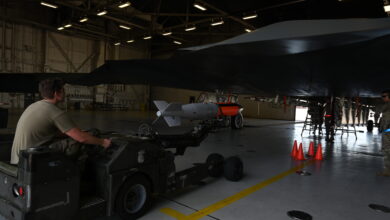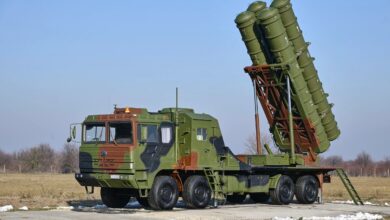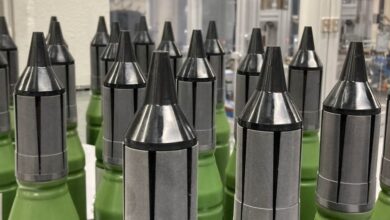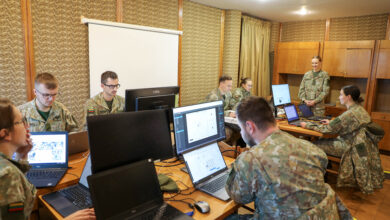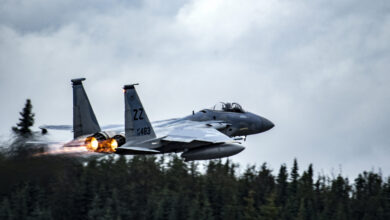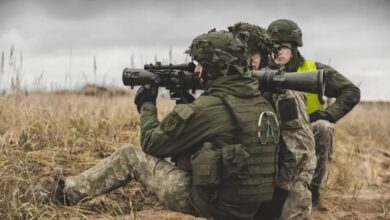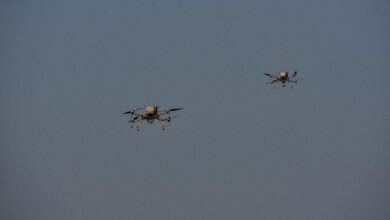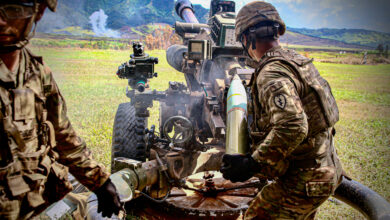Scholz Rejects Drastic Rise in German Defense Spending
German Chancellor Olaf Scholz on Tuesday rebuffed a proposal to almost double the defense budget, seeking to position himself as a voice of moderation ahead of snap polls next month.
Significantly increasing defense spending “without saying what the money will be spent on and where it will come from” was a “half-baked” idea, Scholz told the Stern weekly.
“Who will pay the bill? The citizens?” the German leader said.
The center-left chancellor was responding to a proposal made by his deputy Robert Habeck, who will lead the Greens into general elections on February 23.
In an interview with Spiegel magazine, Habeck called for Germany to increase its defense budget to 3.5 percent of gross domestic product, up from NATO’s target of two percent of GDP.
“We have to spend almost twice as much on our defense so that (Russian President Vladimir) Putin does not dare to attack us,” said Habeck, whose party was once staunchly pacifist.
Germany reached the NATO benchmark last year for the first time in decades, after Scholz announced a significant spending boost in the wake of Russia’s invasion of Ukraine in 2022.
Since the collapse of Scholz’s three-way coalition in a row over spending priorities in November, the chancellor has called for “massive” investments in defense and security.
The Social Democrat however tempered his defense spending ambitions with his latest comments, while failing to give a specific figure.
Scholz has tried to present himself as a prudent promoter of peace on the campaign trail, responding to voter concerns over an escalation of the Ukraine war.
The chancellor has emphasized his government’s support for Ukraine but repeatedly stressed that Germany must avoid being drawn directly into the conflict.
NATO chief Mark Rutte has called for members to “turbo-charge” their defense commitments amid speculation the alliance could agree a new, higher spending target.
Last year, 23 of NATO’s 32 members hit the military alliance’s two-percent of GDP target but Rutte said “a lot more” will be needed to counter the threat from Russia.



